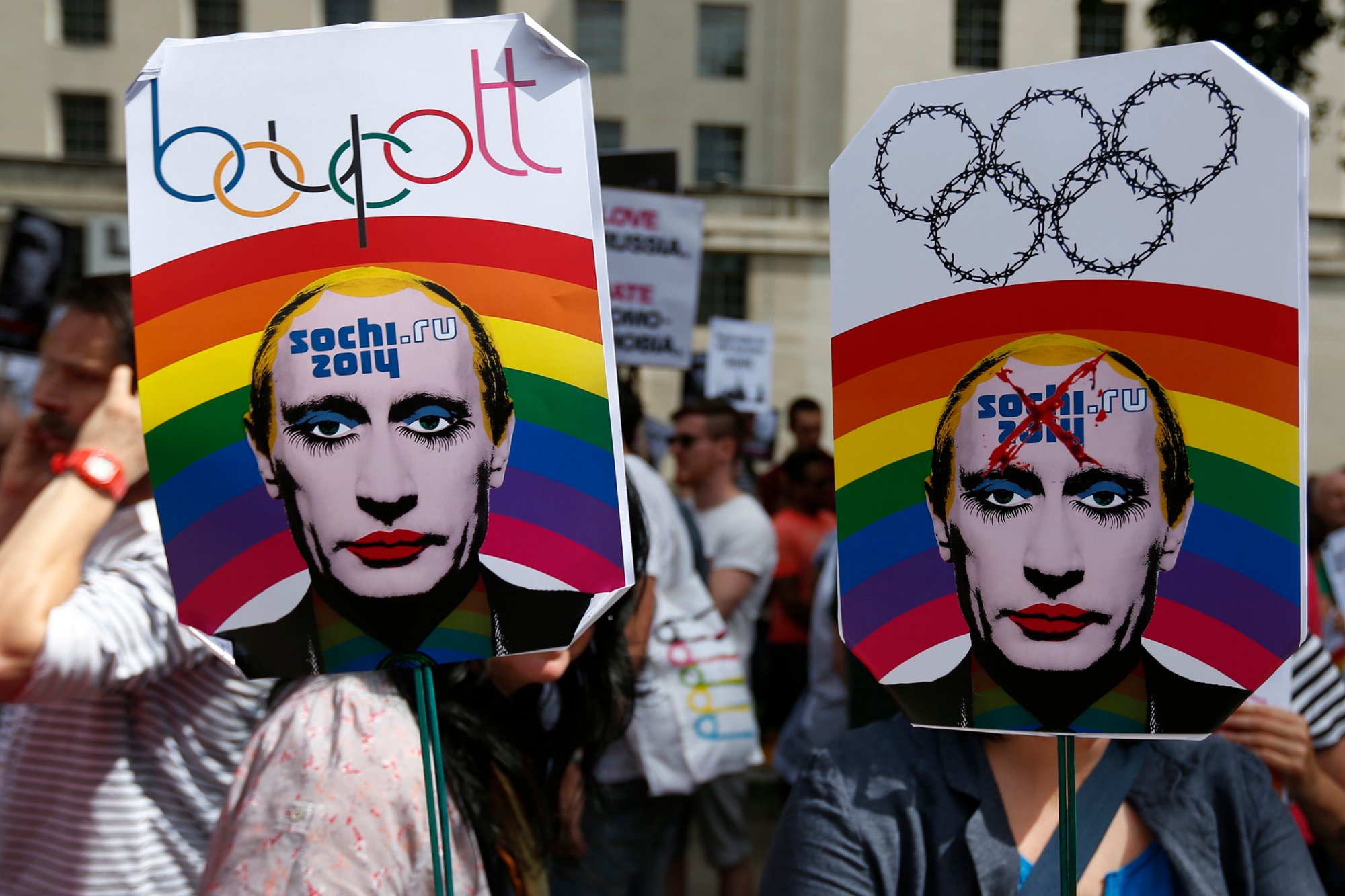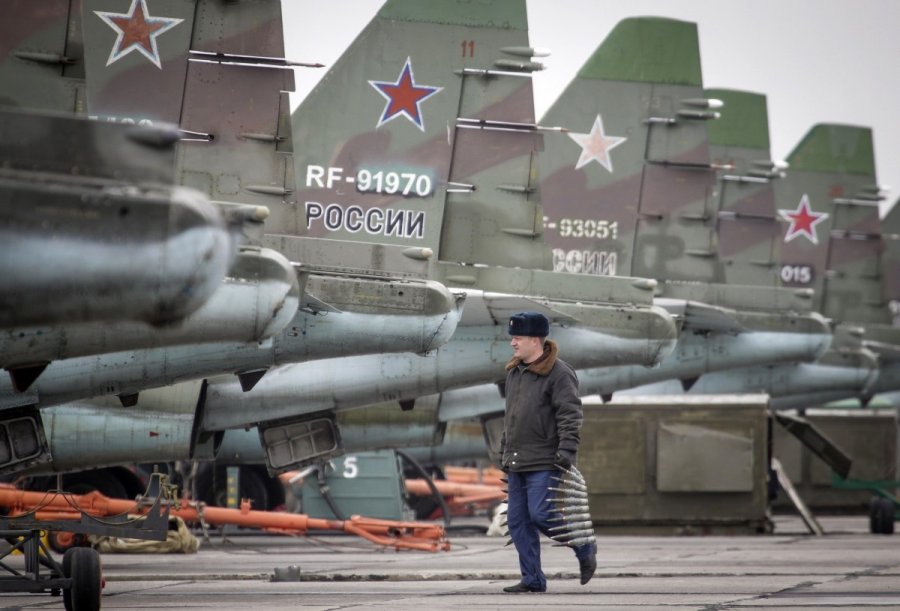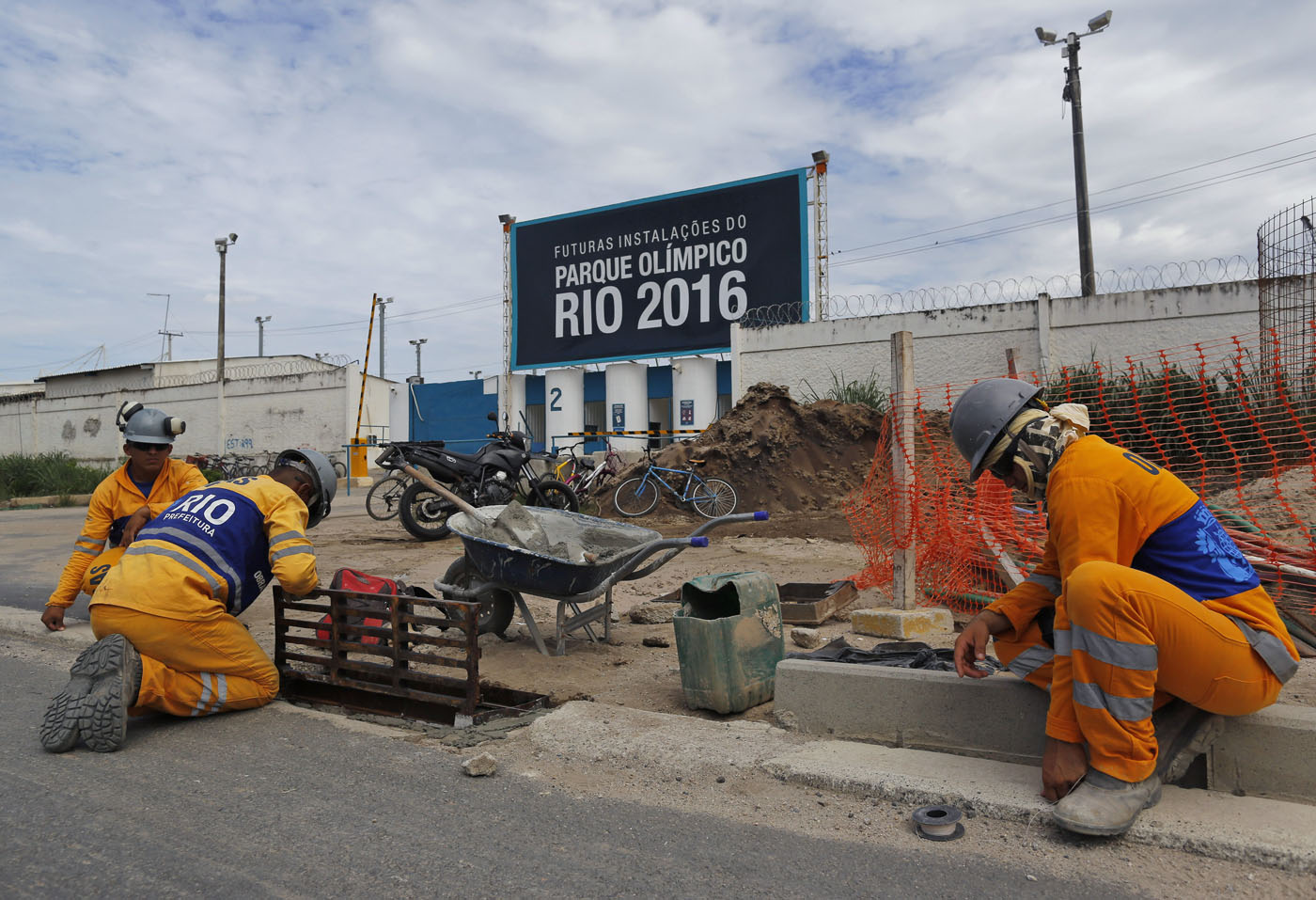By: Eli Scott

(Photo Credit: http://www.thedailybeast.com)
What event has many bars in Canada, Australia, and the United States refusing to serve Russian vodka brands like Stolichnaya and Zyr? Surprisingly, controversies surrounding the 2014 Winter Olympics have caused such backlash against Russian vodka, as well as provoking skepticism over whether or not Russia can handle hosting such an international event.
When Russia was awarded the 2014 Winter Olympics in 2007, the country was reenergized to host its first international sporting event since 1991. This hosting of the Olympic games has proven to be a testament to Russia’s burgeoning economic and political relevance. However, alleged human rights and surveillance abuse surfacing in buildup to the opening ceremonies in February of 2014 are overshadowing the trend of growth and increasing importance for Russia.
Controversies, however, are not new to Olympic games. Protests and activism have become almost synonymous with the Olympic games. Memories of past Olympics evoke images of Tommie Smith’s raised fist in a reference to the Black Power movement during the 1968 games in Mexico City. More recently, the 2008 Beijing Olympics experienced fiascos with human rights advocates threatening boycotts to persuade China to pass more legislation protecting civil liberties.
The controversy that has elicited the most media coverage of the upcoming games has been the passage of a law, sanctioned by both the Russian prime minister and by the Russian president, that outlaws the dissemination of information to minors that portrays gay behavior or relationships in a positive light. The punishment for such propaganda dissemination can include a fine as well as up to fifteen days in prison.
While the International Olympic Committee has practiced self-disillusionment in claiming that it has received numerous reassurances from Russian leaders that the “legislation will not affect those attending or taking part in the games,” Russian politician Vitaly Milonov has stated that athletes and visitors would not be exempt from the criminalization of pro-gay behavior.
Although this law has been criticized by both President Obama and British Prime Minister David Cameron, neither will advocate a boycott of the Sochi games. Moreover, organizers of the Sochi games are pleading to the IOC to discourage speculation and controversy surrounding the games; many are citing Rule 50 of the Olympic Charter that posits that “no kind of demonstration or political, religious or racial propaganda is permitted in any Olympic sites, venues or other areas.” Not only are states not actively protesting this law, but Olympic athletes are also discouraged from demonstrating their views on the issues, at least once the opening ceremonies commence.
But that has not stopped American Olympians from speaking out before the start of the games, and their opinions have ranged from the detached and apathetic to the impassioned and accusatory. American figure skater Ashley Wagner expressed an objective statement, professing that “it’s not [her] place to go into Russia and tell them how to run their country.” With her statement in mind, a dichotomy arises between respecting national sovereignty and eschewing Western ideals of non-discrimination pertaining sexual orientation.
The contention does not end with the squabble over gay rights in Russia. Human Rights Watch has been following the exploitation of migrant workers tasked with the construction projects of the Olympic Stadium and Olympic Village. These workers have been detained in mass raids beginning earlier in September, and their wages, earned in despicable working conditions have now been withheld indefinitely.
Similar to the discussions over human rights abuses, disputes have arisen over the intense monitoring regime that is being implemented for the 2014 Sochi games. Analysts have stated that these games will include the “most comprehensive surveillance in Olympic history.” Such surveillance, to an extent, is necessary as evidenced by the strict security measures undertaken for the recent London Olympics. Similarly, compounding conflicts like the possibility of insurgence in the nearby North Caucasus region and the influx of foreigners has legitimatized the need for heightened Russian vigilance.
But one point of contention lies with the appointment of Oleg Syromolotov, the former head of Federal Security Service counterintelligence, to handle Sochi security, which has been deemed “PRISM on steroids.” The appointment is perplexing because Russian President Vladimir Putin has emphasized the fact that the real threat to the Sochi games is terrorism in Chechnya. Therefore, it is odd that a counterintelligence specialist would be heading a program concerning terrorists. This issue is especially disconcerting to those visitors who feel that their privacy rights could be violated unnecessarily and believe that many measures enacted aim to limit privacy and not to combat terrorism.
This view has fueled paranoia, whether warranted or not, concerning the security of visitors’ and athletes’ information during the Sochi games. Many measures, such as the supposed ability of the national electronic surveillance system to intercept and modify email service, are evoking skepticism, but most feel that traditional security measures such as 40,000 police officers and 5,000 surveillance cameras are justified.
As the Olympic torch arrived in Moscow on Sunday, many Russians were embarrassed when a gust of sudden wind extinguished the flame. Analogously, Russian officials hope that the hype of the 2014 Sochi Olympics will not be extinguished by international controversies, especially because these games could become an integral proving ground for Russia as it looks ahead to hosting the 2014 Formula 1 Grand Prix and the 2018 World Cup. As tensions intensify over human rights and security, Russia and the IOC could run the risk of losing support from corporations. Six out of ten IOC worldwide sponsors are American, including Coke and General Electric. In light of the severity of the situation, Russia should evaluate its national goals and ensure that these align with its yearning to become internationally relevant. Thus, it may have to suspend some of its conservative legislation in order to maintain the international prominence it has elicited through hosting many upcoming international sporting events, the success of which could bolster its reemerging economic and political clout (and possibly reconcile its ailing vodka sales in Canada, Australia, and the United States).

